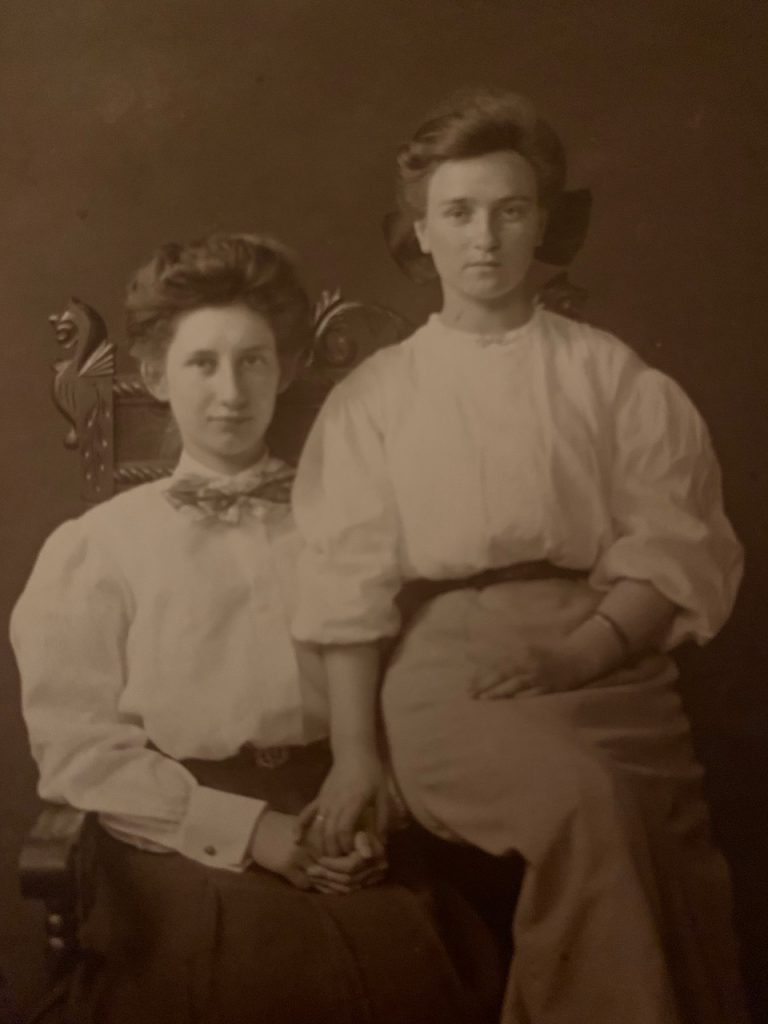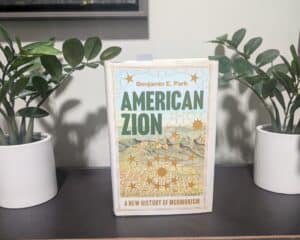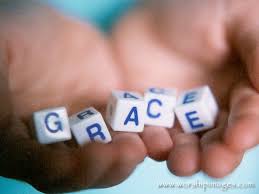
This is the second of a four-part series on grace, anger, social media, and Mormon feminism.
February 2020
By LMA
I wrote this past month on the blog about my experiences learning about intersectional and Mormon feminism. I want to talk now about the different ways we relate to one another, particularly in social media spaces. The majority of social media interaction I have is on Twitter, but much of this applies in other spaces as well.
I want to start out by saying I am not referring to excusing intentionally bad behavior or unkindness or willful harm of others. We are never allowed to behave in those ways. It is never okay to act that way. And when we do, there are often serious consequences. People will rightly call out what we’ve said or done. We might lose opportunities or relationships or potential relationships. Healing and healthy dialogue stops. This type of behavior is ungodly.
I am also not referring to the tendency to lean into our blind spots or the places that make us feel overly comfortable and lead us to ignore our privilege. Even if it feels very uncomfortable, it is necessary and holy for us to engage with and understand the various forms of privilege we have experienced.
I see our relationship between one another as Mormon feminists and women+ as being dialectic, meaning it contains opposite components. On the one hand, I strongly feel that we need to acknowledge all of our humanity and show kindness and grace and love toward one another in our interactions as Mormon feminists. Each person deserves compassion as they make a good faith effort to learn and express themselves and ask questions. On the other hand – and equally important – is learning to negotiate our own and others’ anger and harness it toward the oppression we seek to dismantle. This part of Mormon feminism is especially gritty and messy and uncomfortable at times.
I have seen situations on Twitter where people have been attacked or criticized for expressing an experience or idea related to intersectional feminism generally or Mormon feminism specifically in an inelegant way. I have also seen situations where people have been criticized for not using a specific intersectional feminist term correctly, or for expressing an opinion that is different than the majority of those in our community, or within the majority of those who often speak in social media spaces. These types of interactions create an environment that is not conductive to safety, sharing, and our growth/learning as feminists/activists.
Because our identities and experiences as Mormon feminists and activists are diverse and deserving of compassion and understanding, I also believe there needs to be a place for grace and humanity in Mormon feminism.
What I mean is that if we are genuinely making a good faith effort and doing the best we can, expecting perfection in each other in our feminism or activism and punishing or hurting one another when we naturally don’t do things just right is just another form of perfectionism and oppression we are perpetuating toward one another.
Though I consider myself well educated and able to discuss most intersectional feminist issues, in my own personal social media interactions, I am often nervous to express a certain opinion because I feel anxiety and fear about how my ideas will be responded to. This often keeps me from expressing my ideas personally in social media spaces. As I discussed last month in my blog post, I was not raised understanding feminism or social justice, and it can be new and vulnerable using and expressing these ideas in front of others.
As Mormon women, we are all operating under the oppressive power structure of patriarchy in some form. We are often not taught about how to manage conflict and the strong emotional responses (e.g., defensiveness, anxiety, anger, fear) we might have during these dialogues, and especially if others directly address or question something we have said or done. We are taught to fear and avoid our own and others’ anger at all costs. Just as intersectional feminism helps us understand the complex intersections in others’ experiences and identities, it should also help us understand the complex intersections in our experiences and identities as people who talk about and engage with intersectional feminism, Mormon feminism, or activism in general.
For example, I am a White, highly educated Mormon woman with a significant trauma history. Some of this trauma is with women. Because of my trauma experiences, if I express myself and make a mistake, it is exceptionally distressing to be told I’m wrong or said something bad or hurt someone with what I’ve said. I do not want a free pass to act unkindly, ever. But these experiences sometimes complicate my ability to express myself. Because of these experiences, I am very aware of how difficult it can be to assert yourself even in primarily female spaces. It can be terrifying.
Sometimes I also wonder what our dialogue and interactions about intersectional feminism and/or Mormon feminism would be like if we were in the same room vs. on social media. All of us experience different forms of oppression and I think if we could attend to vital in-person cues (e.g., facial expression, body language, tone of voice) this would matter. I think it would be easier in some respects because we can clarify and make ourselves understood a bit more easily, and others are able to show compassion and kindness and validation in more concrete, direct ways. I understand this is often not possible, but I wonder what might happen to our interactions on social media if we were to consider one another’s humanity in the ways we choose to respond to one another when discussing important issues related to intersectional feminism, Mormon feminism, and activism.
In her powerful essay, “Uses of Anger: Women Responding to Racism,” Audre Lorde writes about how white women and women of color negotiate difference and their feelings of anger. This discussion has important applicability to the ways we manage anger as women+:
“The strength of women lies in recognizing differences between us as creative, and in standing up to those distortions which we inherited without blame, but which are now ours to alter. The angers of women can transform difference through insight into power. For anger between peers births change, not destruction, and the discomfort and sense of loss it often causes is not fatal, but a sign of growth.”
All of us deserve safety and support in “standing up to those distortions which we inherited without blame, but which are now ours to alter” (Lorde, 2017, p. 31-32). I hope there is a Mormon feminism where all of us are continually safe and supported to grow, evolve, and express our ideas – in good faith, imperfectly, with grace directed toward others and ourselves. I am so grateful to the women+ I know who make our spaces this way.
Some questions to consider:
What role do you believe anger plays in Mormon feminism for us individually and collectively?
What role does anger play in social media interactions? How does it impede supportive interactions between people?
What types of messages would help yourself and others feel comfortable sharing their ideas in MoFem spaces?






8 Responses
Thank you for articulating some of the complexities of the MoFem community. I agree that communication without all the nonverbal stuff is super tricky. And anger is a necessary and useful tool in the feminist arsenal, and it can also be used to shame and silence. I think as we struggle towards intersectionality there will be collateral damage. I don’t know if it’s possible to create a space where people are free to express themselves that also feels safe. Because those two things are sometimes at odds. I’m not being very clear here but I appreciate what you’ve written and feel the tension.
LMA— I cannot thank you enough for this post!! It is a must-read for every single person in our Exponent II social media world. I often witness sharp responses to comments/posts, when a more thoughtful reply would have been better. Each one of us is at a different place in our understanding of intersectionality. If those who understand it more rebuke the ones who are just starting to see— isolation, rather than education often results. For ex. if I’m yelled at for using incorrect terminology, I don’t feel like staying in the conversation— I shut down. leave, or worse, start an argument. But if I’m treated with kindness and sincerity, I feel that I can be part of the conversation. I can grow and continue to learn. We can and must do better. There is enough “othering” in this world. I hope Exponent can be a gathering place.
I agree with you that in general, a soft answer turneth away wrath, but grievous words stir up anger. Patience and meekness in our exchanges go such a long way. We should always model peace and understanding in all our exchanges with each other.
I leave you this reply with all the sincerity of heart I have, because I want to say something that will be helpful to you. The scenario you describe above is the exact perfect presentation of the fragility of white feminism at work, and ultimately prevents actual understanding from ever taking place.
Please let me explain.
You state: “For ex. if I’m yelled at for using incorrect terminology, I don’t feel like staying in the conversation— I shut down. leave, or worse, start an argument.”
In this example, you are the one who has admittedly committed an error of some kind, potentially and possibly doing some amount of harm to the person or group of people to whom you were referring, whether ignorantly or intentionally. You perceive correction as being “yelled” at. And then instead of reflecting inward, apologizing and listening for how to do better, your example broadcasts the fragility of defensiveness – shutting down, leaving, or firing back with argument. All of these devices serve to re-center YOU as the aggrieved party, and deflect your original error or misstep toward the person or group to whom you spoke of incorrectly.
You then state: “But if I’m treated with kindness and sincerity, I feel that I can be part of the conversation.” Conversations rooted in kindness are ideal, but if you were the one who was in error, you’ve already led out with unkindness and someone is already threatened by what you’ve said. You’re asking a potentially injured person to put their pain away to engage with you in a kinder way than you initially engaged with them. In this circumstance, the onus is on you to apologize, then the conversation can proceed with kindness. If the person who “yelled” at you is not a member of a marginalized group, but someone who is advocating on their behalf, the apology isn’t necessarily owed to the whistle-blower, but to all of the members of the group you may have wounded (unknowingly or knowingly) that could be reading along without commenting. They perhaps won’t venture into a space that isn’t safe for them to step without being further wounded, and are quietly relieved that someone spoke up on their behalf.
These are the textbook ways that white feminism creates divisions instead of unity between privileged groups and marginalized groups – when the higher privileged person responds to correction with fragility. Privileged persons must be more resilient to the corrections of their errors, or else marginalized persons and groups are not going to come anywhere near you. By shutting down, leaving, starting an argument or demanding kindness in return for cruelty, you will be broadcasting that you are not a safe person for them to engage with because when you undoubtedly say something wrong (whether by intention or ignorance) they will see that you’re not capable of accepting correction. They are less likely to see engagement with you as something they might consider worth doing.
If you truly want to foster an inclusive space where unity can flourish, focus on your own ability to be corrected. That’s where the growth happens.
Some of the questions I ask myself when trying to expand my mind and my ability to make comments in intersectional feminist spaces are:
1. Who holds the power in this exchange? In all the systems of oppression, there is someone who has the historical precedent for being in a higher power echelon than the other: straight, white, male, cis, educated, wealthy are among the markers for power in many situations. And since it’s non-linear, it works more like a web. A woman of color, for example, is at a power disadvantage relative to maleness or whiteness, but could be advantaged in other intersections like education or straightness.
2. Who holds the discomfort in this exchange? Quite often in exchanges I’ve witnessed, the higher-power-holding person demands the comfort in the situation, demands the nicer “tone” from the oppressed person, and responds with fragility when the lower-power echelon person is speaking to their oppressions. We must be careful not to tone police those who are speaking to their oppressions by asking them to be nicer, more patient, etc. We must be careful not to respond with fragility when our own words or actions are called out as oppressive, but to be humble, to learn from our mistakes, and to do better next time.
3. How do we learn through our discomfort and prioritize the comfort of those at power disadvantages? By asking questions and then truly taking the answers to heart, without minimizing or dismissing what we’ve been asked to do. Sometimes it’s better not to say anything and just listen, or to use the statements we’ve witnessed as jumping off points for our own research and internal changes of heart. We don’t need to saddle oppressed persons with the burden of educating us in order to prove or validate their humanity.
4. Is this exchange an example of a punch up, a punch down, or a lateral punch? What is the work of the oppressed person, and what is the work of the ally? This is KEY to MoFem intersectional work. Punch-ups from people in lower power strata need not be “nice” or patient or whatever when they speak to the pain of the oppressive behavior they’re experiencing. People from higher power strata definitely should not punch down on marginalized folks by minimizing, dismissing or tone policing them.
But what about lateral punching? This is what I see frequently in MoFem groups – straight white privileged MoFems punching around at each other. This is an area where we need to prioritize the comfort of the marginalized folks by advocating for them in helpful ways, and in speaking to others in our similar power intersections about what we see and how we can do better. This is where calling in is useful, as is setting clear boundaries about what types of language and behavior are oppressive or displays of fragility. We white MoFems must help each other develop racial literacy and racial stamina to talk about the difficult things without retreating, and without injuring marginalized folks who might be speaking to their pain, whether it be personal or intergenerational or communal.
LMA – Thank you for writing this post! I share your hope that there is a Mormon Feminism where we all feel safe and supported as we grow and learn from each other.
LMA, what a lovely post. I love this part. “On the one hand, I strongly feel that we need to acknowledge all of our humanity and show kindness and grace and love toward one another in our interactions as Mormon feminists. Each person deserves compassion as they make a good faith effort to learn and express themselves and ask questions. On the other hand – and equally important – is learning to negotiate our own and others’ anger and harness it toward the oppression we seek to dismantle.”
That’s the balance that is so tricky. I feel most comfortable in spaces where there is grace and compassion and nurturing, even in the face of mistakes or insensitivity. I feel that through compassionate communication, we can help others become more aware and do better. At the same time, I see a role for frank expressions of pain, especially coming from marginalized populations. Like you said, how to combine all these elements — compassion, grace, pain, anger, etc. — and channel them in positive directions? That’s the goal for me. I love my Mormon feminist community, and I want us to rise together and get better together, and ultimately, I feel like we have to make space for grace and compassionate mentoring.
This is such a beautiful and important and vulnerable post. Grace doesn’t mean we cannot advocate. Meekness isn’t a lack of power. These attributes seem essential to really see and hear and be seen and heard safely. Exponent should be a safe place for us all even while we are learning. Thank you for this reminder.
It’s been difficult for us to hit the sweet spot of “safe space” for marginalized folks and “learning space” for privileged folks. Hopefully the guidelines we set out for the “learners” help keep it safe for the marginalized members who are witnessing sometimes painful growth without being exposed to micro aggressions or outright prejudice as part of the process.